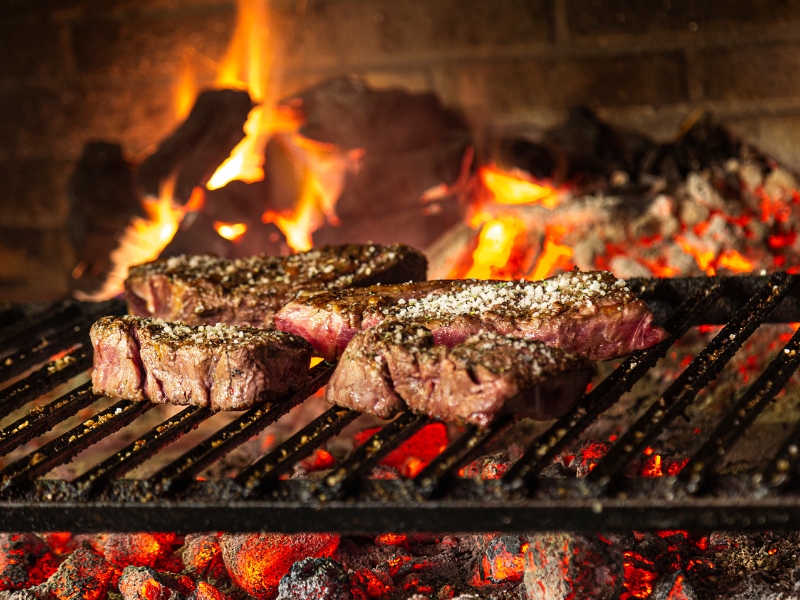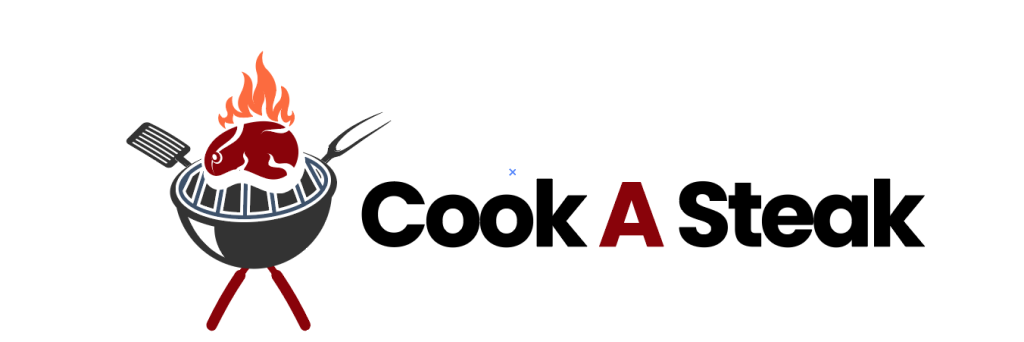
Imagine enhancing your BBQ experience by making a more cost-effective choice without compromising on flavor or overall enjoyment. For BBQ enthusiasts, the decision between charcoal and gas grills is often driven by a balance of taste, budget, and cooking style. Opting for charcoal over gas can lead to significant savings while preserving the authentic, smoky flavor that many grill lovers cherish.
To help you navigate this choice, we delve into three primary considerations: cost comparison, flavor preservation, and economic benefits. Firstly, when it comes to cost, charcoal grills generally offer an advantage in terms of both purchase price and long-term expenditure. While gas grills may come with technological conveniences, they are often accompanied by a higher upfront investment and ongoing costs due to fuel. Charcoal, on the other hand, is comparatively inexpensive and provides a reliable, high-heat source that is perfect for a variety of cooking techniques.
Furthermore, charcoal grilling is renowned for its ability to enhance flavor. The char and the smoky aroma that is infused into the food during the grilling process are unparalleled by gas grills. This flavor preservation adds an irreplaceable depth to your dishes, making any BBQ gathering more delightful and memorable. Enthusiasts who prioritize taste often prefer charcoal for this very reason, enjoying the ritualistic process of lighting and tending to the coals, which is part of the culinary experience.
In terms of economic benefits, choosing charcoal can be a financially sound decision. Beyond the lower initial investment, charcoal grills incur less in the way of repair costs due to their simpler design. Additionally, by following cost-effective habits such as efficient fuel usage and grill maintenance, users can further stretch their dollars, making grilling accessible and enjoyable without financial strain.
This article equips you with the insights needed to make prudent decisions tailored to your BBQ lifestyle. Whether you’re hosting a summer barbecue or indulging in a casual weekend cookout, understanding the advantages of charcoal can help you maximize both your budget and your grilling expertise. Through this journey, we aim to empower you to achieve delicious results while maintaining fiscal responsibility, ensuring that every BBQ event is both tasty and cost-effective.
Initial Costs and Long-Term Savings: Charcoal vs. Gas Grills
Embarking on the journey of choosing between charcoal and gas grills begins with understanding the initial costs and potential long-term savings associated with each option. To make an informed decision, it’s essential to consider both the upfront investment and the continuous expenditures tied to grill ownership and usage.
Initial Investment Breakdown
Charcoal grills often present themselves as a more affordable option upfront. On average, a quality charcoal grill can range from $50 to $300, depending on size, brand, and additional features. In contrast, gas grills typically start at around $150 and can reach upwards of $1,000 for more advanced models with multiple burners and added functionalities. When budgeting for your BBQ setup, it’s crucial to weigh these initial costs against your anticipated usage and preferences.
Understanding Additional Accessories
Regardless of your choice, both types of grills require certain accessories. For charcoal grills, consider the cost of a chimney starter, which can simplify the lighting process, and cleaning tools like brushes or scrapers. Meanwhile, gas grills might necessitate a propane tank or a natural gas hookup, igniters, and additional cleaning supplies. These accessories, while minor in individual cost, contribute to the overall expenses associated with setting up your grill.
Maintenance Considerations
Charcoal grills generally boast simpler maintenance, which can translate to savings over time. Regular cleaning of the grill grates and ash removal are mostly what’s needed to keep them in good condition. In contrast, gas grills require more intricate care, such as checking gas lines and burners for clogs and ensuring that the ignition system is functioning correctly. These added maintenance requirements can lead to increased time and potential costs for repairs or replacement parts.
Long-Term Fuel Costs
One of the more significant factors in favor of charcoal grills lies in the realm of fuel costs. Charcoal is typically less expensive than propane or natural gas. Over a typical grilling season, the cumulative savings from using charcoal briquettes or lump coal, as opposed to refilling propane tanks or continuing a natural gas subscription, can be substantial.
Hypothetical Budgeting Scenarios
Consider a hypothetical scenario: If someone grills twice a week from May through September, the fuel costs for a charcoal grill might sum up to $100, while those for a gas grill could easily exceed $200. Over several grilling seasons, these savings become more pronounced, potentially offsetting the initial investment difference and translating into considerable financial benefits.
By carefully analyzing the initial costs and long-term savings of both charcoal and gas grills, BBQ enthusiasts can make financially sound decisions without sacrificing the quality of their grilling experience. Charcoal grills offer an appealing combination of lower upfront costs and reduced ongoing expenses, presenting them as a budget-friendly choice for the savvy BBQ connoisseur.
Selecting Economical Charcoal Grills: Practical Tips and Considerations
Choosing an economical charcoal grill without compromising on quality requires a strategic approach. This How-To style guide provides you with clear, actionable advice on how to make an informed purchase, ensuring you obtain a grill that satisfies both your budget and your grilling needs.
Understand Your Grilling Needs
Start by evaluating your specific grilling habits and requirements. Consider how often you grill, the number of people you typically cook for, and the kind of food you enjoy grilling. This analysis helps determine the appropriate grill size and features needed.
Assess Fuel Efficiency
Fuel efficiency is a critical consideration when selecting a charcoal grill. Look for grills that offer precise airflow control, as managing air intake is crucial for maintaining consistent temperatures and ensuring efficient charcoal usage. Grills with adjustable vents and lids help maximize fuel efficiency, translating to longer grilling sessions with less charcoal.
Evaluate Grill Durability
Durability is another essential factor. Opt for grills constructed from high-quality materials like heavy-gauge steel or cast iron, which withstand high temperatures and resist rust or corrosion. Pay attention to weld points and moving parts, as these areas often indicate the grill’s long-term resilience.
Consider Size and Portability
The grill’s size should align with your space and portability needs. If you have limited space or plan to take your grill on the road, consider a compact model. On the other hand, if you regularly host large gatherings, investing in a larger grill may be more cost-effective over time. Remember, bigger isn’t always better; choose a size that fits your lifestyle without unnecessary expenses.
Spotlight on Economical Brands and Models
Certain brands stand out for offering affordable yet high-quality charcoal grills. Weber, for example, is renowned for its durable and efficient models, like the Weber Original Kettle, which delivers excellent value with its robust construction and fuel efficiency. Also, brands like Char-Broil and Lodge offer sturdy options known for balancing cost and performance.
Use Real-World Examples and Recommendations
Explore online reviews and user testimonials to gauge the performance and longevity of potential grill options. Real-world experiences can provide invaluable insights into how a grill holds up under various conditions, helping you make a more informed decision.
By considering these practical tips and factors, you can select an economical charcoal grill that meets your needs without breaking the bank. This strategic approach ensures that your investment enhances your grilling experience, offering both quality and savings in the long run.
Maximizing Grilling Sessions: Heat Retention and Charcoal Reuse
When it comes to achieving a cost-effective BBQ experience, mastering the art of maximizing each grilling session is essential. Charcoal’s innate heat retention properties play a crucial role, allowing you to optimize cooking times and conserve fuel. By understanding how to make the most of these properties, you’re not only enhancing your BBQ flavors but also saving money in the process.
Start by selecting high-quality charcoal briquettes or lump charcoal, which tend to burn hotter and longer. This selection is critical because better heat retention means you’ll use less fuel over time. Once your coals are well-lit and have reached the desired temperature, carefully manage the airflow by adjusting the vents on your grill. This practice not only maintains even heat distribution but can extend the burning time of your charcoal, letting you achieve more cooking with fewer briquettes.
An often-overlooked technique is reusing partially burned coal. After a grilling session, identify the coals that are still solid and only partially consumed. Allow them to cool completely by closing the grill vents to suffocate the fire. Once cool, collect and store these coals in a dry, airtight container to keep them ready for your next BBQ. This simple practice can lead to significant savings across multiple grilling events.
Financial savings accumulate impressively when you integrate these strategies. For example, if you save even a small amount of unused charcoal each time you grill and reuse it, the cumulative effect over a season could equate to a free bag of charcoal or more. Consider the scenario of an average BBQ enthusiast who grills weekly. By reusing coals and optimizing the use of each briquette, they could see savings that allow for an extra BBQ party at no additional fuel cost by the season’s end.
Ultimately, charcoal is not just a medium for imparting delicious, smoky flavors but a smart economic choice for those who grill frequently. By implementing these techniques, BBQ enthusiasts can enjoy superior flavors while simultaneously being efficient with their grilling resources. This approach ensures that your passion for grilling aligns perfectly with prudent investment in your backyard adventures.
